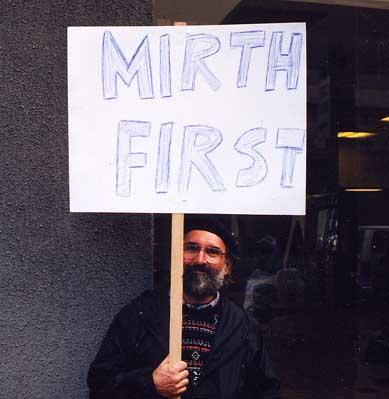Tuesday, October 11, 2005
Transactions, Markets, and Economic Unfreedoms

This seeming contradiction is also articulated by Nobel Peace Prize winner Amartya Sen - a Cambridge Economist who writes on issues of freedom and development. He writes:
To be generically against markets would be almost as odd as being generically against conversations between people (even though some conversations are clearly foul and cause problems for others - or even for the conversationalists themselves). The freedom to exchange words, or goods, or gifts does not need defensive justification in terms of their favourable but distant effects; they are part of the way human beings in society live and interact with each other (unless stopped by regulation or fiat). The contribution of the market mechanism to economic growth is, of course, important, but this comes only after the direct significance of the freedom to interchange - words, goods, gifts - has been acknowledged.
As it happens, the rejection of the freedom to participate in the labour market is one of the ways of keeping people in bondage and captivity, and the battle against the unfreedom of bound labour is important in many third world countries today for some of the same reasons the American Civil War was momentous. The freedom to enter markets can itself be a significant contribution to development, quiet aside from whatever the market mechanism may or may not do to promote economic growth or industrialization. In fact, the praise of capitalism by Karl Marx (not a
great admirer of capitalism in general) and his characterization (in Das Kapital) of the American Civil War as "the one great event of contemporary history" related directly to the importance of the freedom of labour contract as opposed to slavery and the enforced exclusion from the labour market. ... The freedom to participate in economic interchange has a basic role in social living.- Amartya Sen Development as Freedom pps.6-7
